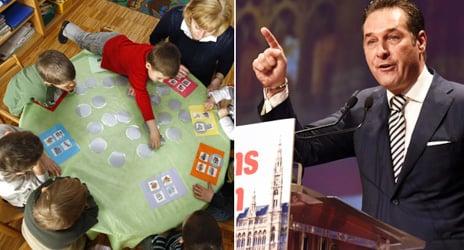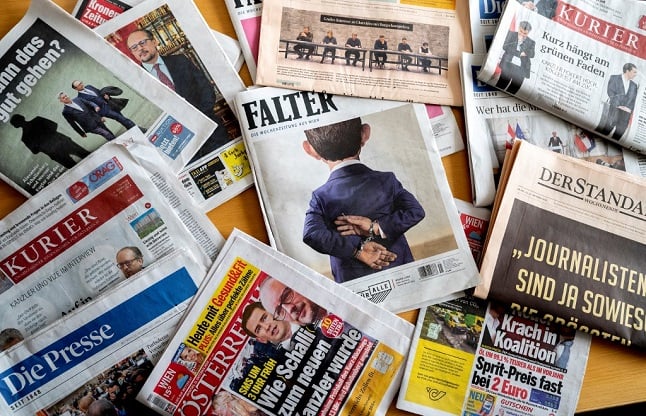Freedom Party leader Heinz-Christian Strache was re-elected as Vienna’s state party chairman on Sunday and has put fighting radical Islam, crime on the U-Bahn network, and immigration top of his agenda.
In a speech at the Hofburg he said that religious education at kindergarten level needed to be carefully monitored “to counteract dangerous currents”.
According to statistics sourced by the FPÖ 43 percent of teachers responsible for Islamic religious education are against democracy and are in favour of introducing Sharia law. Five percent of Muslim students would consider joining jihad fighters in Syria and Iraq, and 66 percent of Muslims believe that women should not work, regardless of their education.
“We need to find out which kindergartens and schools are committed to a violent ideology and and may be sending young Muslims off to fight alongside Isis terrorists abroad,” a parliamentary motion tabled by the FPÖ said. The FPÖ also wants to ban “jihadist symbols” and threaten Isis sympathizers with “instant citizenship loss”.
The party said local communities should be consulted before mosques are built, as they should be considered sensitive projects “in the face of the world situation”, and that they attract large crowds of people which results in an increase in noise and traffic.
Looking ahead to the Vienna state elections in 2015 Strache said it was “time for a change” and that the FPÖ must aim to win between 30 and 40 percent of the vote in order to force the current red-green coalition out.



 Please whitelist us to continue reading.
Please whitelist us to continue reading.
Member comments